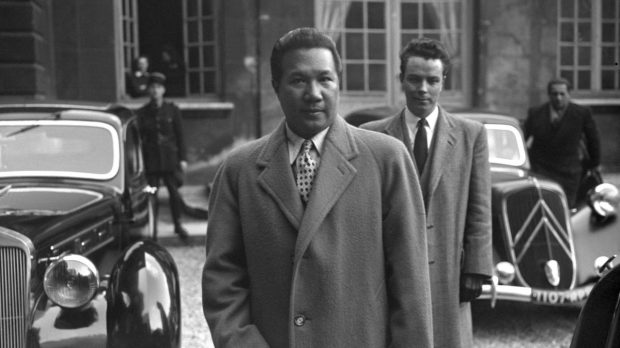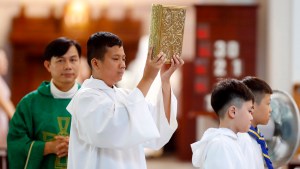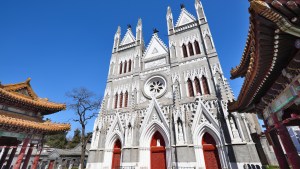One year before his death, exiled in France since 1955, Bảo Đại published a beautiful book about the imperial palace, Huế, la cité interdite (“Huế, the Forbidden City”), from which he had reigned for 20 years.
It’s difficult to imagine him confined within the walls of his aging palace: his fashionable suits gave him the appearance of a perfect Western businessman. His taste for hunting, golf, and sports cars seems to have permanently distanced him from the traditions and religion of his fathers. But the destiny of this last emperor of Vietnam is even more astonishing, due to both his contrasting personality and the the story of his conversion to Catholicism, which is mixed with French colonial history.
This descendant of the Nguyen dynasty, which produced 13 rulers, is indeed a complex character. As Frédéric de Natal, a specialist in royalty, explains to Aleteia, “Throughout his life, Bảo Đại was both a bon vivant and a religious man.”
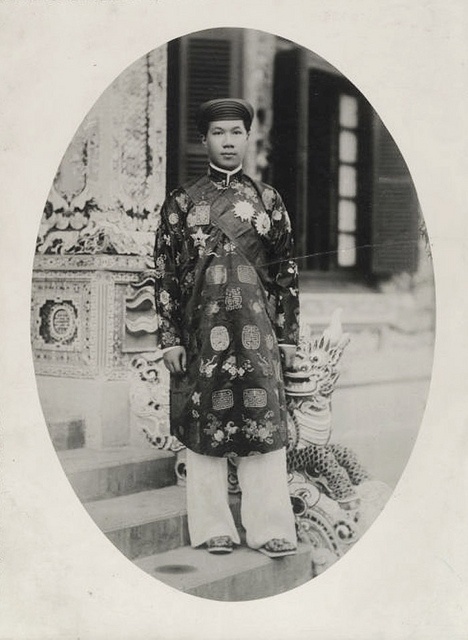
The son of Emperor Khải Định, Prince Vĩnh Thụy, born on October 22, 1913, grew up in the Imperial Palace in Huế. While Indochina lived under a French protectorate, he ascended the throne in 1926 at the age of 12. He took the name of Bảo Đại (“He who protects greatness”). But the young teenager, placed under regency until the age of 19, immediately left for Paris to study: he attended the Cours Hattemer, the Lycée Condorcet, the Lycée Lakanal, and then the École libre des sciences politiques.
The young emperor adapted quite well to French life. After having been a boy scout, he played golf and tennis. He loved sports cars. As a true dandy, he divided his time between his private mansion in the 16th arrondissement of Paris (a neighborhood full of parks, museums, monuments, and homes of the wealthy) and Deauville, a prestigious seaside resort in northwestern France.
Bảo Đại took such a liking to the Western way of life that he was in no hurry to return to Vietnam. “He did not want to give up his lifestyle, and he knew that upon his return he would have to live locked up in his palace. However, in 1932, the French authorities succeeded in convincing him that he could lead the same life in his own country. Moreover, as soon as he returned, he quickly started to make many reforms. In particular, he wanted to establish a constitutional monarchy,” continued Frédéric de Natal.
Love at first sight in Dalat
In 1933, while on vacation at a posh resort in central Vietnam, Bảo Đại met Jeanne-Marie-Thérèse. The two young people immediately got along very well: They had received the same European education. Indeed, the young girl, from a rich family of landowners, one of the oldest Catholic families in the country, had just finished her studies in France where she had been sent, like Bảo Đại, at the age of 12. She had studied first at the boarding school of the Canons of Notre-Dame, and then at the convent of Les Oiseaux in Neuilly.
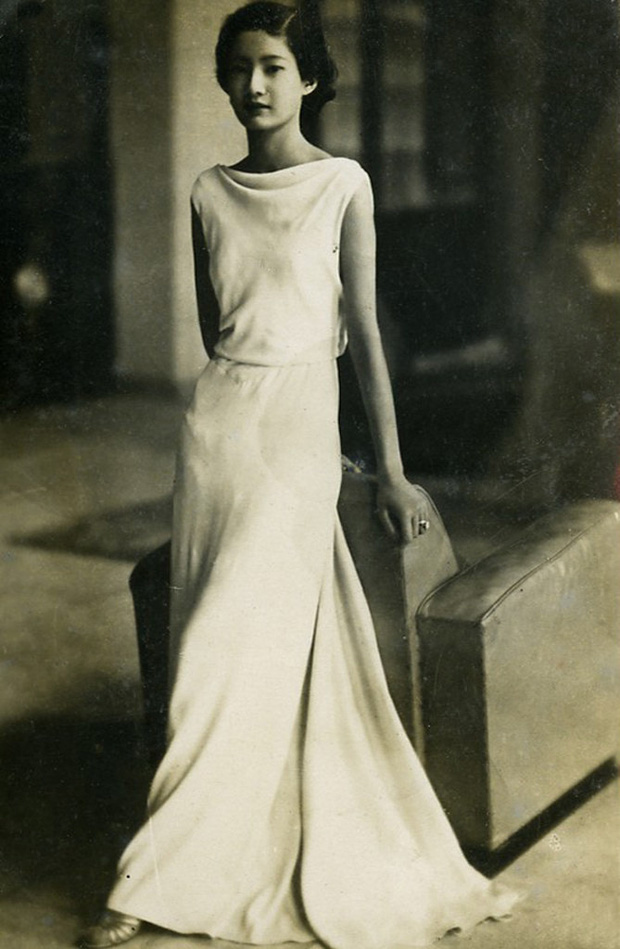
Sincerely in love, the young sovereign announced a few months later his engagement to this Catholic Vietnamese woman. Delighted, the parents of the young girl — fervent Catholics who spent their time building churches and religious buildings in the country — saw a marriage with the emperor taking shape.
The news, which caused a sensation, was very badly received by the imperial court. For the court, it was a real catastrophe in a predominantly Buddhist country where Christians, who were a very small minority, had long been persecuted, even by Bảo Đại’s father and grandfather.
Marriage with a Catholic woman
A scandal broke out against the backdrop of a rumor launched earlier by a republican newspaper claiming that the emperor had been baptized.
“There was no proof; it was completely false,” said Frederic de Natal, “But the rumor spread. Why? Because Bảo Đại really was interested in the Catholic religion.”
Because of the public uproar caused by the rumor, the French government finally became aware of the matter and censored all the articles that spread the false news of his baptism.
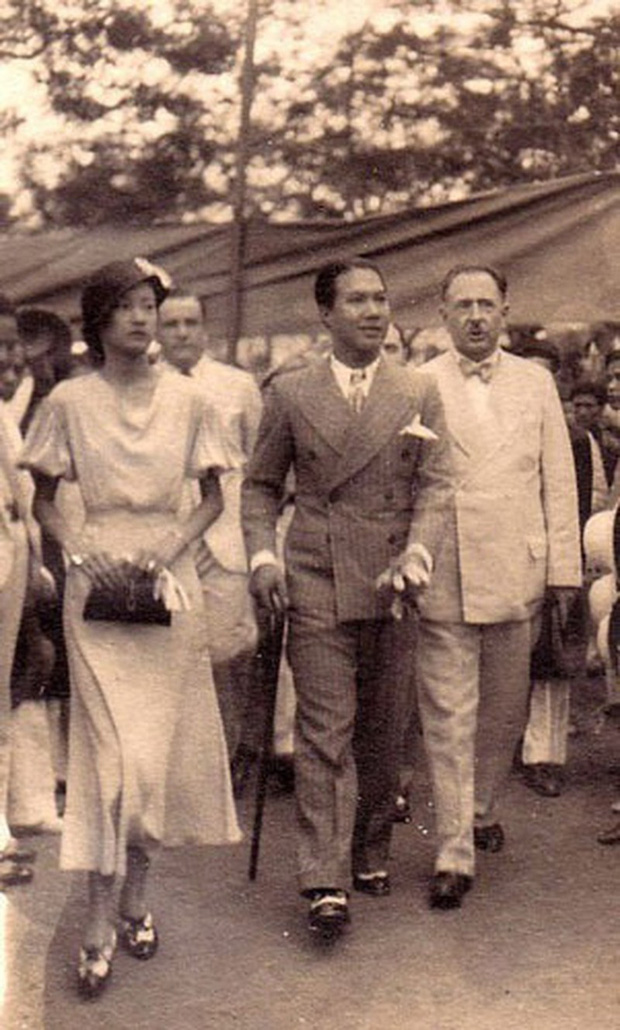
On the part of the Holy See, Pius XI initially refused to give the canonical dispensation required for the interfaith marriage, although the emperor had requested it. The pope demanded that the future children be raised in the Catholic religion. “It was impossible, in fact; the court would oppose it. But Bảo Đại signed a secret protocol, according to which he would secretly raise his children in the Catholic faith,” explains Frédéric de Natal.
It was in this context that the wedding ceremony—which lasted four days, with part of the ritual ceremonies strictly forbidden to the public—took place at the imperial palace in Huế, from March 20 to March 24, 1934. Endowed with a strong personality, the bride demanded to bear the title of Imperial Highness of “Nam Phương” (“Southern Heavens”).
Catechism classes on the sly
The empress raised her children in Catholicism alongside their education in Buddhism. She had them baptized in secret. And when she gave them catechism classes, her husband was not far away, and he listened to her, too.
“Nam Phuong imbued him with religious education, notably by reading the Bible to his son in front of him. The atmosphere was far from the imperial protocols that one can imagine! Bảo Đại kept everything within him, like a secret treasure that would eventually blossom the day he would ask to be baptized,” says the expert on royalty.
A woman of duty, Nam Phuong devoted herself to opening, with the nuns of the Congregation of Notre-Dame in Dalat, a convent of Les Oiseaux where she had her daughters educated. Nam Phuong also had a great project that she wished to entrust to her husband: that of making Vietnam the first Catholic kingdom in Asia. While he never appeared in public with Catholic authorities, he read the Bible in secret.
The exile of the fallen emperor
In 1945, Japan proclaimed the independence of Vietnam with Bảo Đại as emperor. But he abdicated shortly afterwards when Ho Chi Minh proclaimed the republic. He was then relegated to the rank of “supreme advisor,” and went into exile in Hong Kong. He was reinstated by the French in 1949, with the title of head of state and no longer as emperor, and was finally overthrown in October 1955 by his Prime Minister Ngo Dinh Diem. Bảo Đại, the last sovereign of the last Vietnamese dynasty, left the political scene for good.
The former sovereign went into exile with his wife and their five children in France, at the age of 42, to live a very long and very discreet retirement in Cannes, and then in Paris.
He had a little money and a small court of exiles around him. Nam Phuong, suffering from her husband’s infidelities, left him in spite of her convictions and took up residence at her property in Corrèze where she died at the age of 52. As for Bảo Đại, he rediscovered in France the lifestyle of his youth, resumed hunting, golf, and sports cars. He multiplied his amorous adventures … until he met Monique Baudot, a 23-year-old woman from Lorraine, in 1969.
Princess Monique and Saint-Louis des Invalides
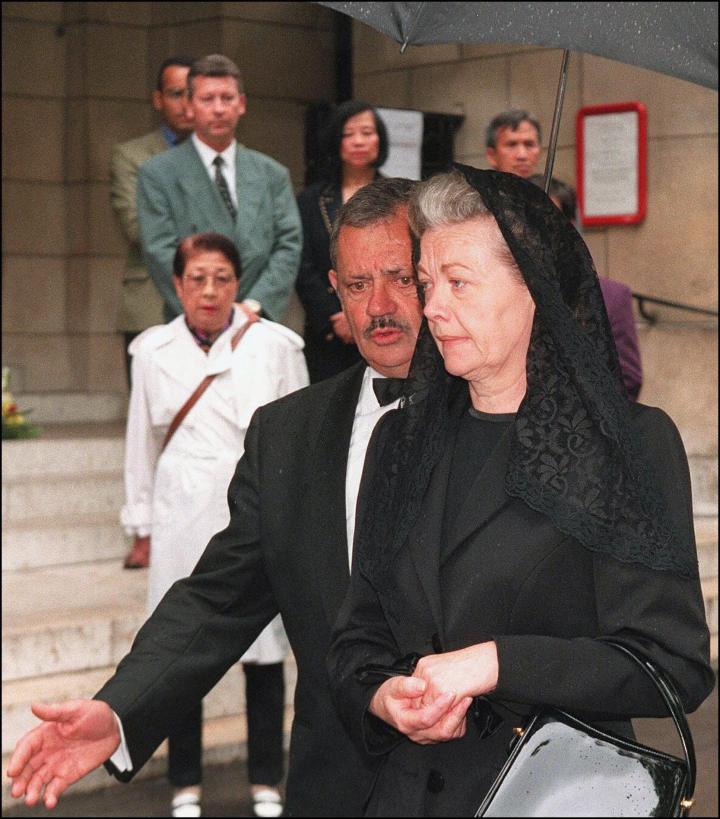
It was at the Zairean embassy that their eyes met. Monique Baudot was in charge of the embassy’s press office. She married the emperor in 1972. Called Princess Monique, she was a very religious woman with a discreet personality who regularly went to Mass at the church of Saint-Louis des Invalides in Paris. She finally convinced her husband to take the plunge and join the Christian community. In 1988, he was baptized under the name of Jean-Robert.
Although the ceremony took place in the greatest privacy, some close to both the family and Cardinal Lustiger, Archbishop of Paris at the time, confirm Bảo Đại’s long preparation for baptism, which can be seen as a very particular path towards the Christian faith marked by the living testimony of his two wives: Nam Phuong first, then Princess Monique.
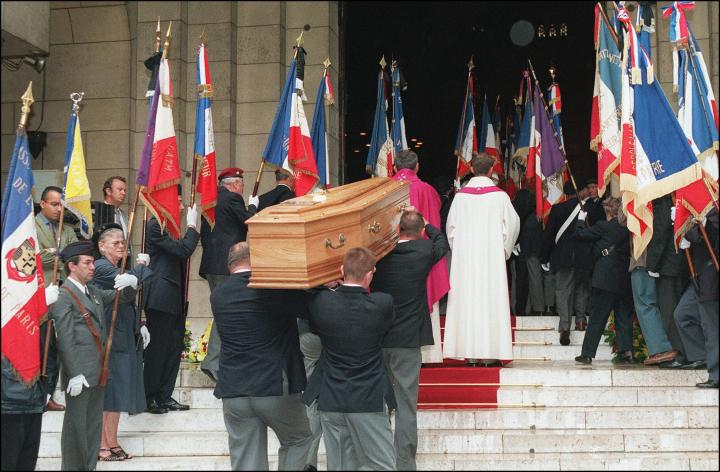
“With his baptism, Bảo Đại entered the Catholic Church with full force. He became a devoted Christian. Having become a fallen ruler and a lonely man, he found redemption under the gaze of Christ. He died this way, even though he is far from being a saint,” concludes the specialist in royalty.
